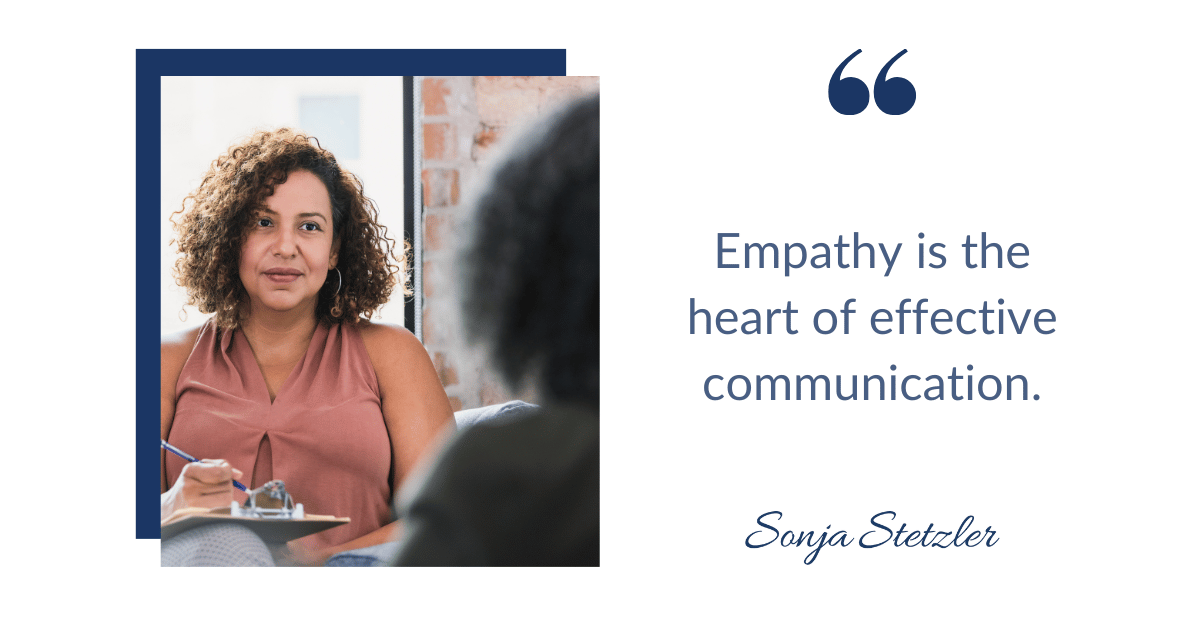As leaders, how do we or could we do more to invoke and/or develop our empathetic communication skills?
Empathy is the heart of effective communication whether you have an audience of one or an audience of many. Empathetic communication builds trust, reduces conflict, productively resolves problems, and increases engagement.
The following acronym (SLACK) describes attributes and skills that encompass empathetic communication and can be used for those seeking growth in this area.
Develop your empathetic communication skills using SLACK:
S – Self-Awareness.
How aware are you of your own emotions, strengths, and weaknesses and how is your behavior impacting others? An awareness of your own behaviors and deciding how you want to show up in your interactions with others can be a first step in changing negative behaviors into more positive interactions.
L – Listening.
Although listening is 50% of the communication process, many of us are not attentive or present enough when we listen to others. Empathetic listening includes the ability to be open to a new perspective in a non-judgmental way.
Allowing others to be heard with attentive presence is one of the greatest gifts you can give to others.
A – Acknowledgement.
Aligned with listening is validation of what you have heard. Playing back what you have heard signals that you were present and that you were paying attention (which is challenging in our world filled with distractions).
Acknowledgement goes a long way to develop trust. Trust is essential in building a collaborative business environment.
C – Compassion.
“Nobody cares how much you know until they know how much you care” is a quote that has been attributed to Teddy Roosevelt. Communicating care and compassion through verbal and nonverbal communication can reduce feelings of isolation and increase feelings of connectedness. This can boost motivation, engagement, and productivity.
K – Kinetics.
By kinetics, I mean action. (Ok – I needed a word that would work in the acronym!)
Is there an action that needs to be taken to resolve an issue, or an initiative you would like to see going forward? This is the likely outcome of empathetic communication – a meaningful understanding of each other’s needs and a positive resolution to a challenge.
How would you rate yourself on your empathetic communication? Where might you make improvements? Please comment below and share your thoughts.
 Most people don’t remember the data they hear in presentations. However, they do remember stories.
Most people don’t remember the data they hear in presentations. However, they do remember stories.
Why?
Stories make an emotional connection with an audience.
Stories make us, as speakers, more relatable.
And if a story is told well, the impact you can make with a story is longer-lasting than data.
Grab my free Storytelling Workbook to start crafting your stories to create a greater impact with your audiences – enter your name and email below to download a copy.

